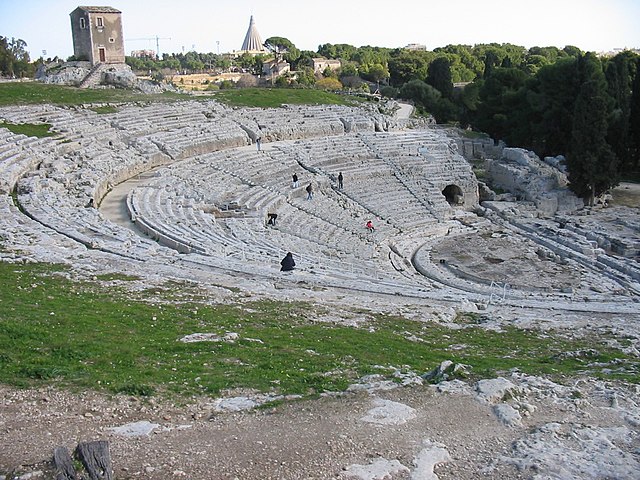Saturnian meter or verse is an old Latin and Italic poetic form, of which the principles of versification have become obscure. Only 132 complete uncontroversial verses survive. 95 literary verses and partial fragments have been preserved as quotations in later grammatical writings, as well as 37 verses in funerary or dedicatory inscriptions. The majority of literary Saturnians come from the Odysseia, a translation/paraphrase of Homer's Odyssey by Livius Andronicus, and the Bellum Poenicum, an epic on the First Punic War by Gnaeus Naevius.
The tomb of Lucius Cornelius Scipio Barbatus, erected around 150 BC, contains an Old Latin inscription in Saturnian meter.
Lucius Livius Andronicus was a Greco-Roman dramatist and epic poet of the Old Latin period during the Roman Republic. He began as an educator in the service of a noble family, producing Latin translations of Greek works, including Homer's Odyssey. The translations were meant, at first, as educational devices for the school which he founded. He also wrote works for the stage—both tragedies and comedies—which are regarded as the first dramatic works written in the Latin language. His comedies were based on Greek New Comedy and featured characters in Greek costume. Thus, the Romans referred to this new genre by the term comoedia palliata. The Roman biographer Suetonius later coined the term "half-Greek" of Livius and Ennius. The genre was imitated by later generations of playwrights, and Andronicus is accordingly regarded as the father of Roman drama and of Latin literature in general; that is, he was the first man of letters to write in Latin. Varro, Cicero, and Horace, all men of letters during the subsequent Classical Latin period, considered Livius Andronicus to have been the originator of Latin literature. He is the earliest Roman poet whose name is known.

Detail of a poet giving directions from a theatrical scene. Roman mosaic from the tablinum Casa del Poeta tragico (VI 8, 3–5) in Pompeii. Naples National Archaeological Museum.
Ancient theater at Syracuse, Sicily, originally Greek
Roman fresco of a theatre scene




